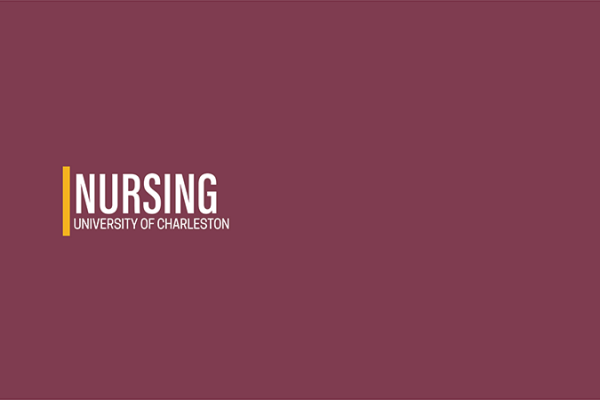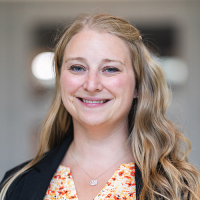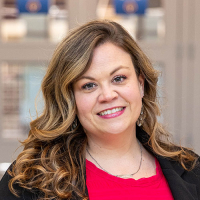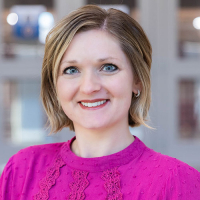
Nursing (BSN) Degree Program | University of Charleston
-
duration
4 Years
-
format
In-Seat
-
location
Charleston
-
faculty
1:8-10 Faculty to Student Ratio
BSN Degree Program Overview
Our traditional, four-year Bachelor of Science in Nursing (BSN) program offers an exceptional nursing education to meet the diverse and changing health care needs of the community. We provide opportunities for skill development and outstanding clinical rotation experiences at several different healthcare facilities (including a level 1 trauma center, free-standing women and children’s hospital, and more). Upon graduation students will be prepared to take the NCLEX-RN Licensing exam to become a Registered Professional Nurse (RN).
In addition to offering an exceptional nursing education, the UC nursing BSN degree program goes beyond classroom learning to provide students with extensive practical experiences. Through our carefully designed curriculum, we aim to equip future nurses with the necessary skills to meet the diverse and ever-evolving healthcare needs of the community.
By exposing our students to a wide range of healthcare settings, we ensure they acquire a comprehensive understanding of nursing practice and develop the ability to adapt to various patient populations. This exposure not only enhances their clinical skills but also cultivates qualities such as empathy, resilience, and critical thinking, which are crucial for their success as future registered professional nurses (RNs).
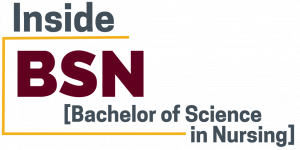
What You Will Learn in the BSN Program
The Bachelor of Science in Nursing degree program provides students with a comprehensive foundation in both the science and practice of professional nursing.
Throughout the program, students study topics such as health assessment, pharmacology, pathophysiology, medical surgical nursing, maternal and child health, mental health nursing, and community-based care. Coursework is designed to strengthen clinical judgment, patient communication, and evidence-based decision making while emphasizing safe and ethical nursing practice.
By the time students complete the BSN degree, they are prepared to deliver high quality patient centered care and adapt to a wide range of healthcare environments as registered professional nurses.

Freshman applicants with a 2.50 or higher high school GPA and transfer students with a 2.0 or higher cumulative college GPA are eligible for general admission to UC. Students may apply online or download the admissions application.

To qualify for admission into the BSN program, students are required to complete an application during the second semester of their freshman year. Transfer students must complete the BSN program application along with their general UC admissions application.
- Students must gain admission to the University of Charleston before applying for admission to the BSN Program.
- Admission into the BSN Program occurs by application before the beginning of the sophomore course sequence. Applicants must be academically admissible or re-admissible. You must submit a copy of your high school transcript, GED, or TASC with your nursing application.
- Have a minimum 2.0 cumulative GPA in collegiate coursework.
- Complete the required freshman-level courses with a “C” or higher.
- The student will be required to take the TEAS examination and score a minimum of 60% or higher to be eligible to apply to the program. Students wanting to prepare for the TEAS exam before testing may order a study guide from https://www.atitesting.com. There can be a total of 3 TEAS testing attempts between January and December, and a 60-day waiting period must occur between each attempt. Read more information related to the TEAS exam. For a full listing of test dates and locations and to register, see the registration site.
BSN selection is a competitive process in which applicants are scored on their cumulative college/university GPA, their TEAS score, and holding health care licensure (e.g. EMT or LPN license). Applicants are ranked by their total scores and cohort seats are offered to the top scoring applicants until the cohort is full or the number of qualified applicants is exhausted, whichever comes first.
Please submit your completed application and required documents to:
University of Charleston Admission Office
- Attention: Johnny Jones
Admission Notification
We will respond to your application with an email of decision within two weeks from the application deadline. Application Deadline is the 3rd Wednesday in March.
Download the BSN UC Nursing Application
Download the Nursing Student Handbook
Transfer Nursing Students
Transferring to the UC BSN nursing program from West Virginia offers numerous benefits. UC’s exceptional nursing education, diverse clinical rotation opportunities, and preparation for the NCLEX-RN exam ensure a well-rounded nursing education. The program’s commitment to meeting changing healthcare needs equips students to excel in their nursing careers and make a meaningful impact on the community.
To be considered for admission, a transfer nursing student must refer to the Nursing Student Handbook for Nursing Student Transfer Policy Requirements and submit the following requirements:
- Confirmation of your acceptance as a student to UC*
- An official copy of all previous college/university transcripts*
- An official copy of your high school diploma, GED or TASC*
- Transfer equivalency determination from the UC Student Solutions Center with verification of a 2.0 cumulative transfer grade point average
- A copy of your score on the Nursing Entrance Exam (TEAS). Applicants must achieve a minimum TEAS score of a 60% or higher
- Visit our general transfer admission requirements page to learn more.
*Must complete UC general admission requirements with UC Admissions Office before submission of this application.
Please submit your completed application and required documents to:
University of Charleston Admission Office
Attention: Johnny Jones
Evaluation of Credits
The Department of Nursing reserves the right to evaluate all transfer credits. Additional departmental testing may be required to determine proficiency and placement. The BSN faculty will assess competency levels for placement in the program. Students who transfer into the BSN program MUST complete a minimum of 30 credit hours at the University. All transfer students must be able to complete the program within a total of 12 semesters from the time their first nursing course was taken.
Admission Notification
We will respond to your application with an email of decision within two weeks from the application deadline.
Program Highlights
-
NCLEX-RN passage rate above state and national average.
-
Nationally accredited by the Accreditation Commission for Education in Nursing (ACEN).
-
More than 50 years’ experience educating over 3,000 nurses.
-
Clinical experiences in the state’s only Level I trauma center and the only free-standing Women’s and Children’s hospital.
-
Several premier health care facilities are less than ten minutes from campus, providing high-quality clinical rotations.
-
Ranked 2 out of 26 registered nursing programs in West Virginia by registerednursing.org.
Program Outcomes
-
Program Completion Rates
2024- 65%
2023- 41.2%
2022- 46.2% -
Program Pass Rates
2024- 87%
2023- 100%
2022- 64.2%
Additional Information
The Bachelor of Science in Nursing (BSN) program at the University of Charleston is accredited by The Higher Learning Commission (HLC).
The Higher Learning Commission (HLC)
230 South LaSalle Street
Chicago, IL 60604
1-800-621-7440
www.hlcommission.org
The (BSN) program is fully accredited by:
The West Virginia Board of Examiners for Registered Professionals Nurses
90 MacCorkle Avenue Ave., SW
Suite 203
South Charleston, WV 25303
304-744-0900
1-877-743-NURS (6877)
FAX: 304-744-0600
rnboard@wv.gov
http://www.wvrnboard.wv.gov
The Baccalaureate Degree nursing program at the University of Charleston at the Charleston Campus located in Charleston, West Virginia is accredited by the:
Accreditation Commission for Education in Nursing (ACEN)
3390 Peachtree Road NE, Suite 1400 Atlanta, GA 30326
(404) 975-5000
The most recent accreditation decision made by the ACEN Board of Commissioners for the BSN nursing program is Continuing Accreditation with Conditions.
View the public information disclosed by the ACEN regarding this program at http://www.acenursing.com/accreditedprograms/programsearch.htm.
Nurse Licensure Guidance tool, provides information for either domestically-educated or internationally-educated nurses who want to be licensed in your states/jurisdictions.
What Are the Major Differences Between an RN and a BSN?
An Registered Nurse (RN) may be licensed with an associate (two-year) degree in nursing (ADN) or a bachelor’s (four-year) degree in nursing (BSN). While the ADN has the advantage of a shorter path to degree completion, the advantage of the BSN comes in professional advancement. Due to its more comprehensive nature, including additional coursework in areas like leadership, research, and community health, BSN graduates are more likely to move into leadership and management roles more quickly. In fact, many healthcare organizations are encouraging or requiring nurses to obtain a BSN as they recognize the value of a higher level of education in improving patient outcomes and healthcare quality.
What Are Some Common Degrees Students Pursue After Completing Their BSN?
After completing a Bachelor of Science in Nursing (BSN) degree, students have several options for furthering their education and advancing their nursing careers. Some of the common next degrees that BSN graduates may consider enrolling in are:
- Master of Science in Nursing (MSN): An MSN degree allows nurses to specialize in a specific area of nursing practice, such as nurse practitioner, nurse educator, nurse administrator, nurse midwife, or clinical nurse specialist.
- Doctor of Nursing Practice (DNP): The DNP degree is a terminal practice-focused degree that prepares nurses for the highest level of clinical practice.
- Post-Master’s Certificate: This option is available for nurses who already have an MSN but wish to pursue additional specialization or certification in a specific nursing field.
- Advanced Practice Registered Nurse (APRN) Certifications: BSN graduates can also pursue APRN certifications in various specialties such as family nurse practitioner, pediatric nurse practitioner, psychiatric-mental health nurse practitioner, or certified nurse midwife.
It’s important for BSN graduates to research and carefully consider their career goals, interests, and the requirements of their desired nursing roles when deciding which degree or certification to pursue after their BSN.
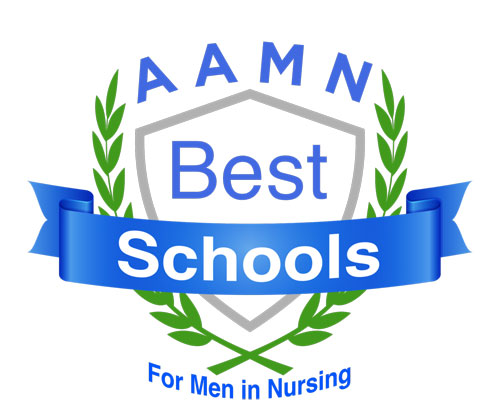
Meet the Faculty
Meet the Faculty

Director of the Capito Department of Undergraduate Nursing
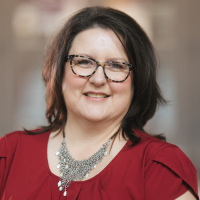
BSN Program Coordinator
Assistant Professor of Nursing

Nutrition Program Director
Assistant Professor of Nursing

Assistant Professor of Nursing
